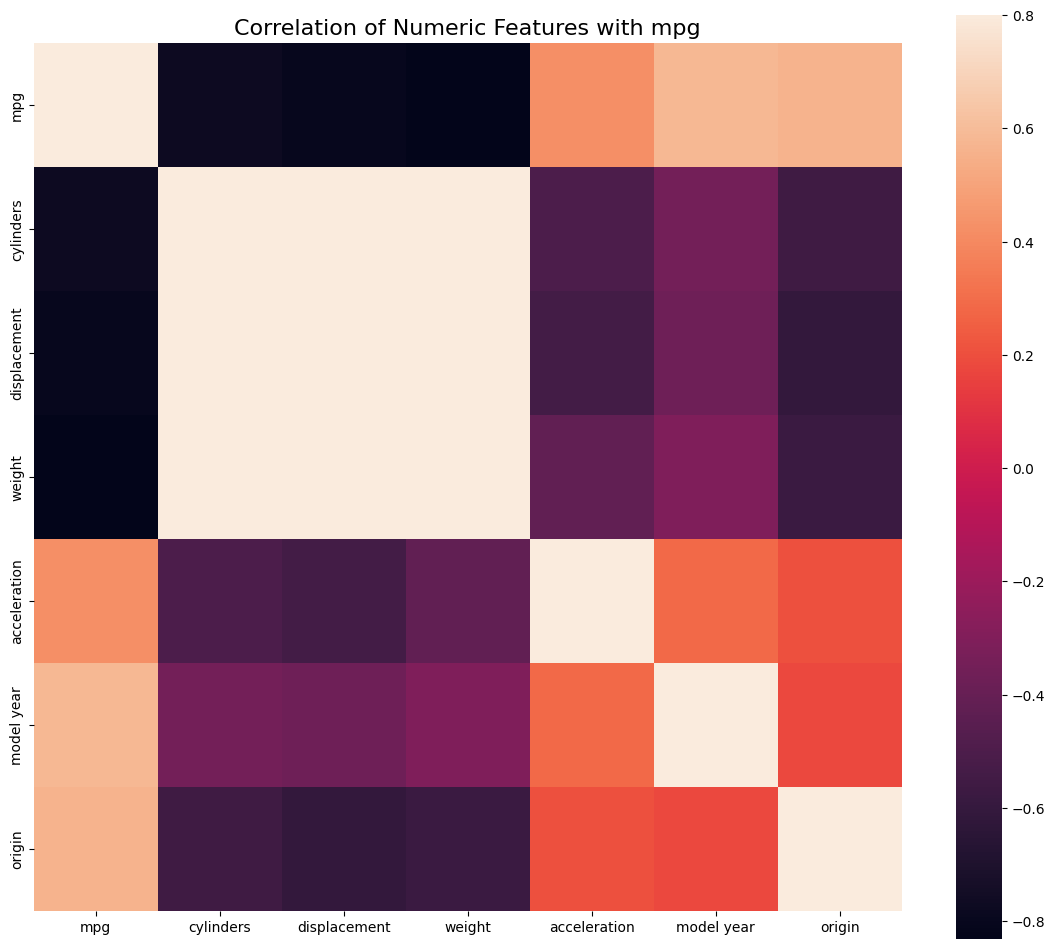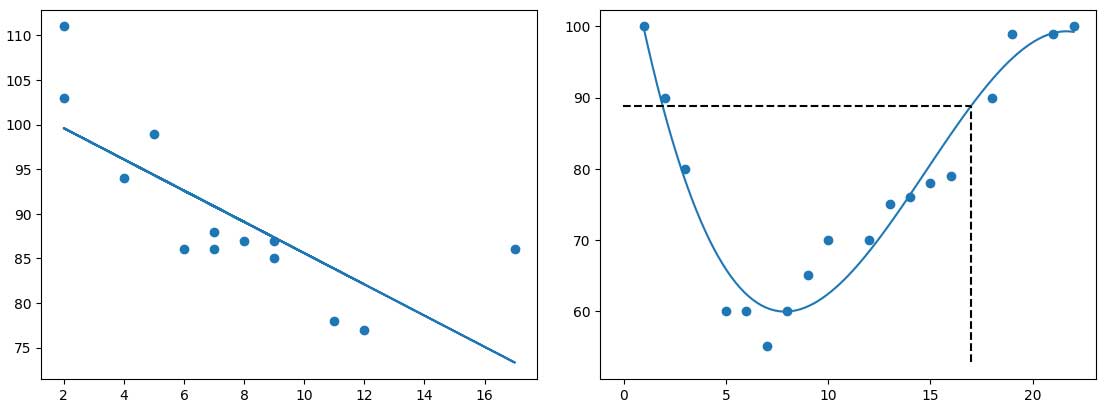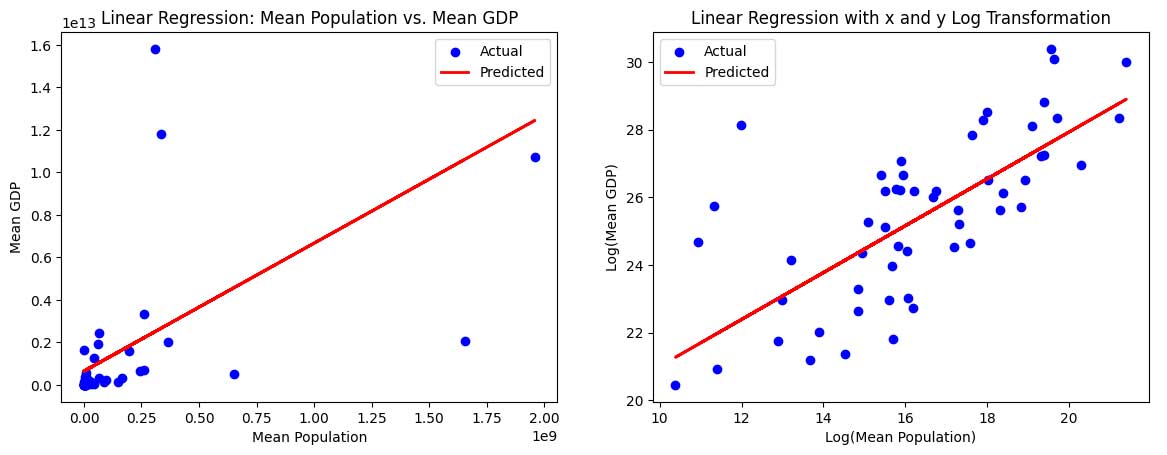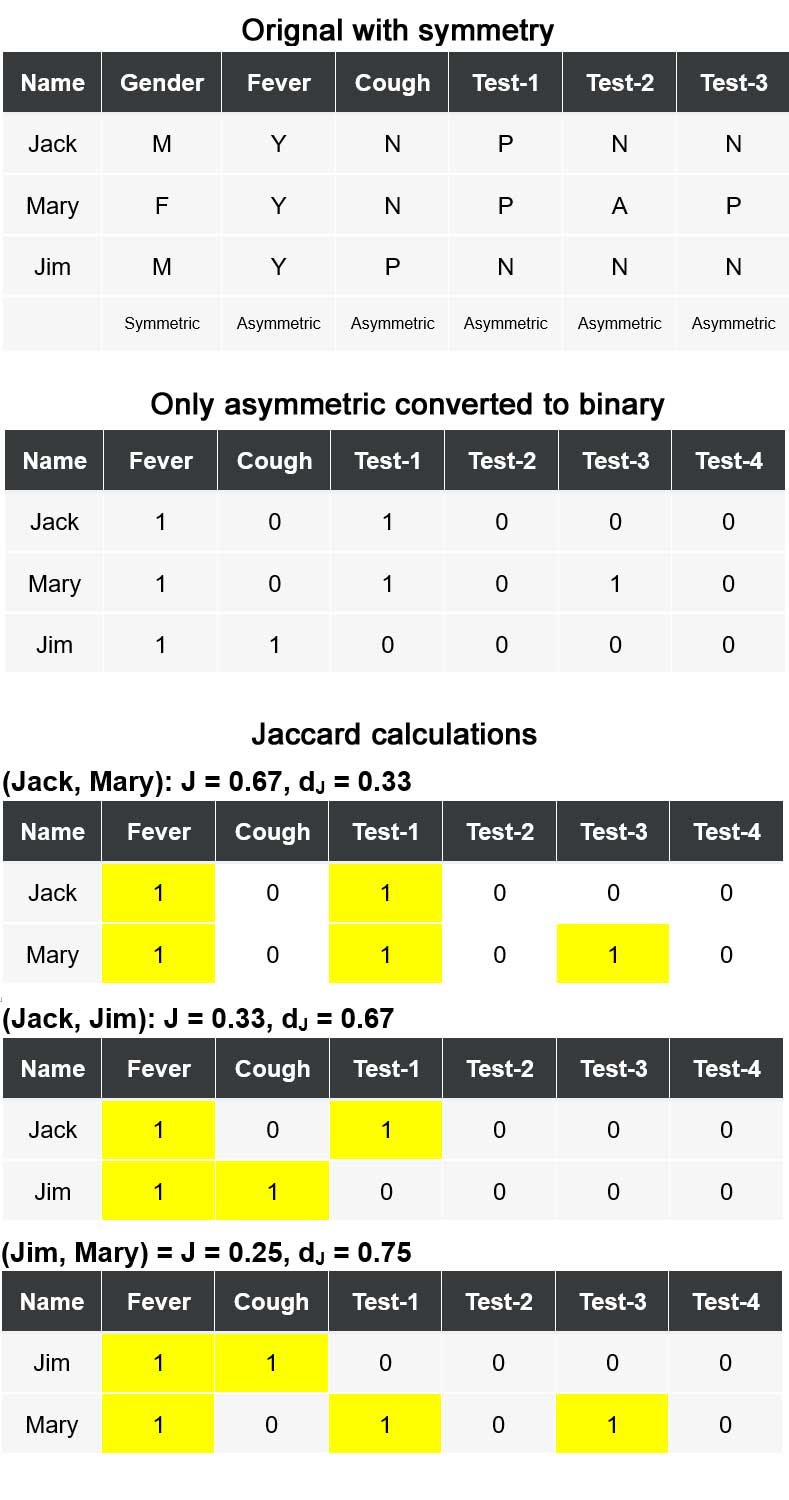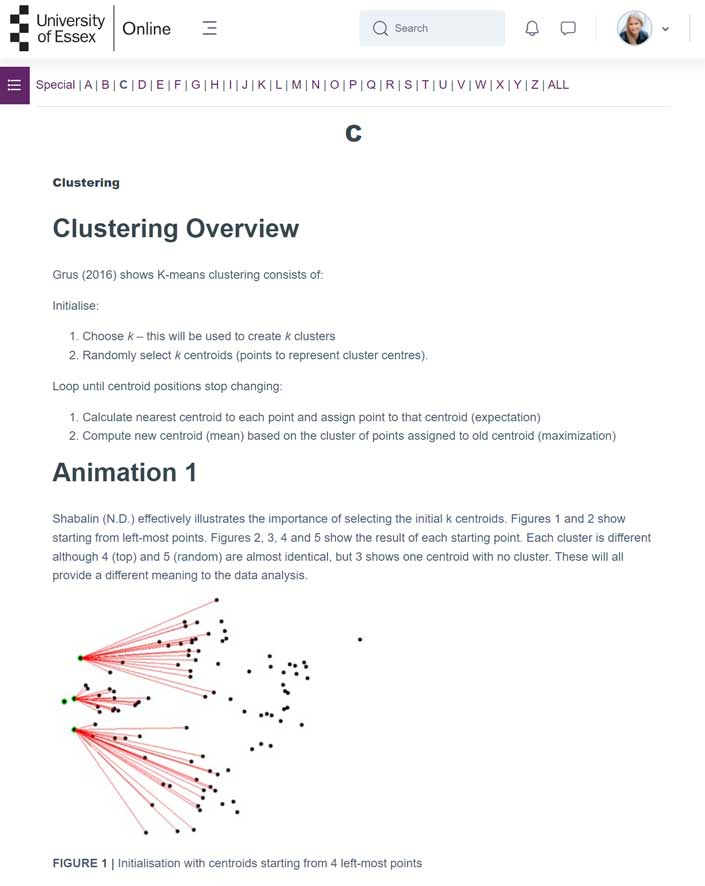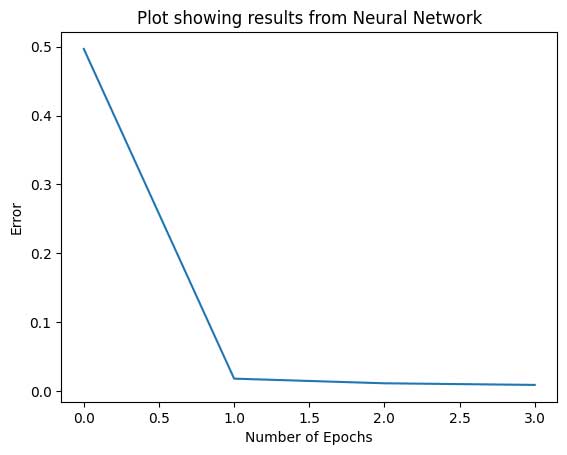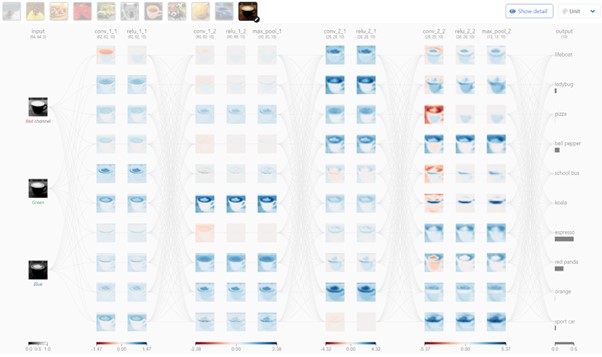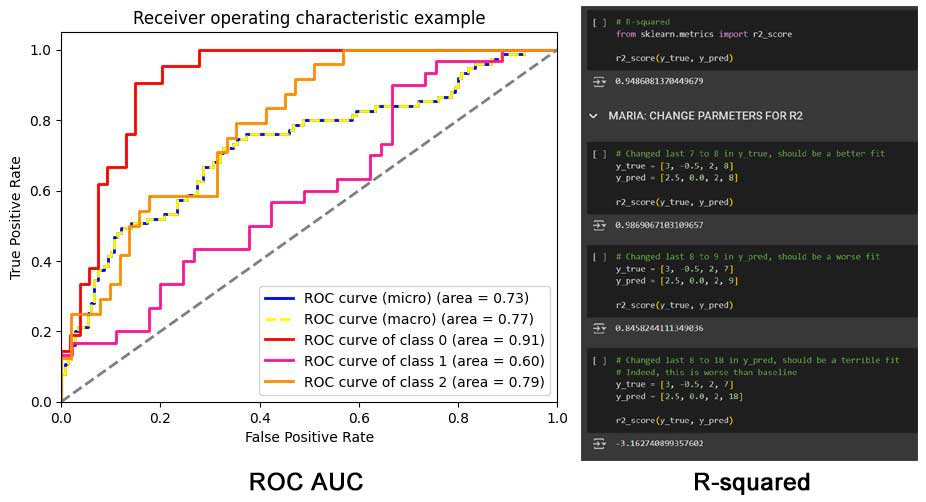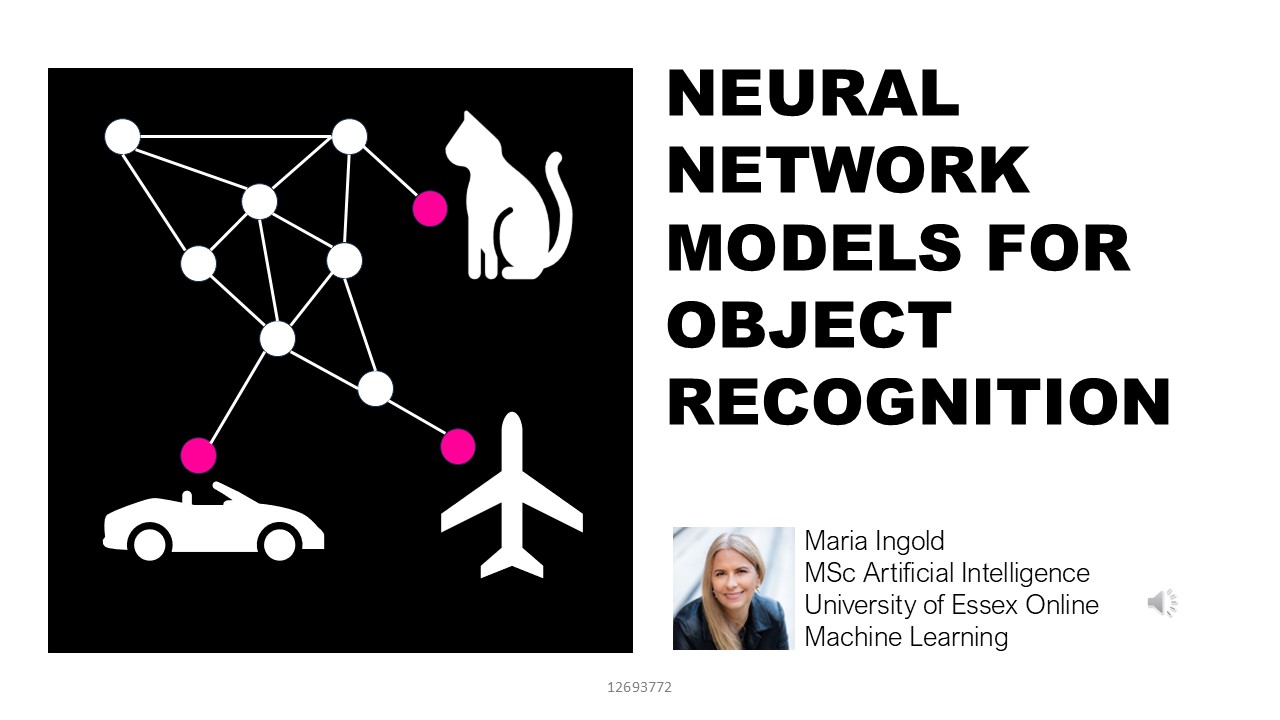Learning Outcomes
Machine Learning

- Articulate the legal, social, ethical and professional issues faced by machine learning professionals.
- Understand the applicability and challenges associated with different datasets for the use of machine learning algorithms.
- Apply and critically appraise machine learning techniques to real-world problems, particularly where technical risk and uncertainty is involved.
- Systematically develop and implement the skills required to be effective member of a development team in a virtual professional environment, adopting real-life perspectives on team roles and organisation.
